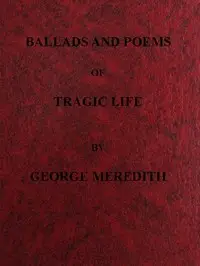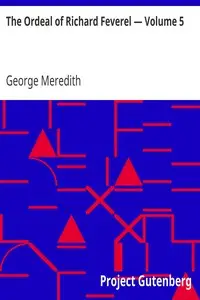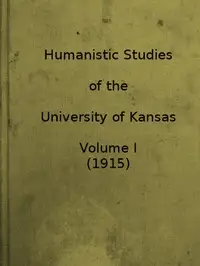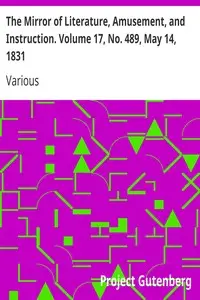"Quotations from the Project Gutenberg Editions of the Collected Works of George Meredith" by George Meredith, is a collection of memorable quotes from Meredith’s writings. It contains thoughtfully chosen excerpts from books like "The Shaving of Shagpat" and "Ordeal Richard Feverel." The book begins with a note that invites readers to share their own favorite quotes and encourages them to discover Meredith's many works; additionally, the compilation features excerpts that showcase Meredith's style and wisdom. Each excerpt contains profound thoughts that capture Meredith's tone and reflect on what it means to simply be human.

Quotations from the Project Gutenberg Editions of the Collected Works of George Meredith
By George Meredith
Wit and wisdom come together in a collection of quotes that shows the complexity of people and society.
Summary
About the AuthorGeorge Meredith was an English novelist and poet of the Victorian era. At first, his focus was poetry, influenced by John Keats among others, but Meredith gradually established a reputation as a novelist. The Ordeal of Richard Feverel (1859) briefly scandalised Victorian literary circles. Of his later novels, the most enduring is The Egoist (1879), though in his lifetime his greatest success was Diana of the Crossways (1885). His novels were innovative in their attention to characters' psychology, and also portrayed social change. His style, in both poetry and prose, was noted for its syntactic complexity; Oscar Wilde likened it to "chaos illumined by brilliant flashes of lightning". Meredith was an encourager of other novelists, as well as an influence on them; among those to benefit were Robert Louis Stevenson and George Gissing. Meredith was nominated for the Nobel Prize in Literature seven times.
George Meredith was an English novelist and poet of the Victorian era. At first, his focus was poetry, influenced by John Keats among others, but Meredith gradually established a reputation as a novelist. The Ordeal of Richard Feverel (1859) briefly scandalised Victorian literary circles. Of his later novels, the most enduring is The Egoist (1879), though in his lifetime his greatest success was Diana of the Crossways (1885). His novels were innovative in their attention to characters' psychology, and also portrayed social change. His style, in both poetry and prose, was noted for its syntactic complexity; Oscar Wilde likened it to "chaos illumined by brilliant flashes of lightning". Meredith was an encourager of other novelists, as well as an influence on them; among those to benefit were Robert Louis Stevenson and George Gissing. Meredith was nominated for the Nobel Prize in Literature seven times.



















